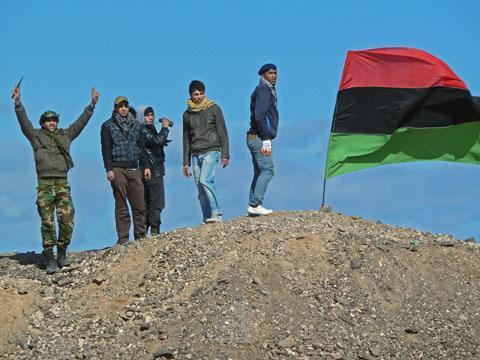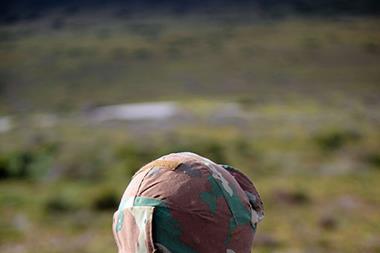Largely out of the headlines since its civil war ended, Libya remains unstable, with the threat of renewed unrest because of frustration over lack of progress and the threatened breakaway of the oil-rich eastern region

Popular discontent in Libya is on the rise as the population becomes increasingly frustrated with the lack of economic and social progress since the revolution, according to intelligence experts. There is even a risk that the oil-rich eastern region could break off from the rest of the country.
After the civil war, which began with protests in Benghazi in February last year, hopes were boosted about new investment opportunities in the country. But, today, Libya is far from stable.
The National Transitional Council’s (NTC) offices in Benghazi were looted recently, a symptom, analysts say, of rising public disaffection with the governing council’s achievements so far.
Companies with operations, or plans to invest, in Libya face considerable strategic and tactical risks, according to a report by risk consultants at Aegis Advisory.
Uprising imminent
On 10 February, almost a year to the day since the civil war began, Saadi Gaddafi (third son of the former Libyan leader, Colonel Muammar Gaddafi) announced
that he was in close contact with Libyans who are unsatisfied with the interim government. He warned of an imminent uprising. “The Libyan people should revolt against these militias and against this deteriorating situation. The NTC is not a legitimate body and is not in control of the militias,” Gaddafi said.
With elections on the way in the summer, discontent is only set to rise, Aegis says. Militias are dominating the streets, security is poor and crime is rising.
According to the Aegis report: “The frustration of the people is abundantly clear. Every word spoken on the streets is pulsating with fear over limited opportunities and disillusionment. There is no improvement in sight.”
The security situation in the capital, Tripoli, is “unpredictable” and “deteriorating”, the Aegis report states. Foreigners are particularly at risk at night. Meanwhile, outside Tripoli the situation is even worse. Gaddafi’s former stronghold of Bani Walid, a town 110 miles south-east of Tripoli, should be avoided altogether, they say.
Security concerns are shared by the international community. A UN Special Representative for Libya recently told the Security Council: “The threat from weapons falling into the hands of groups like Al Qaeda and the Islamic Maghreb is great.”
Control of oil fields
More worrying, East Libyans in Cyrenaica (see map), who make up 25% of Libya’s population, are likely to seek control over oil fields in their region, which accounts for 66% of the country’s entire production, according to another specialist intelligence company, Exclusive Analysis (EA). This would hit energy companies and infrastructure contractors operating in Libya, including in the aviation, power and water sectors.

Cyrenaica, which extends from the central coastal city of Sirte to the Egyptian border, is likely to declare itself an autonomous entity within a federal Libya, says EA. The prediction follows some eastern Libyans’ refusal of the proposed allocation of seats in the planned Constituent Assembly, due to be elected in June 2012, and the formation of a self-declared ‘Barqa’ (Cyrenaica) Army.
This information is unconfirmed and based on EA’s assessment of political and violent risks in Libya.
Political and military leaders
from the Libyan region of Cyrenaica indicated they would meet in the coming weeks and declare their region to be self-governing with its own parliament.
If Cyrenaica goes ahead with the breakaway, contract risks will increase for companies with business in the area, EA warns. It would also affect oil buyers worldwide because they would be uncertain who to deal with.
A break-up could also precede all-out war. The Tripoli government’s rejection of Cyrenaica’s likely declaration of autonomy could lead to conflict, particularly near Sirte, where EA’s analysts expect forces to form a defensive line. The Tripoli government is not expected to have the military capability to impose its will on Cyrenaica.
Any hopes for future stability in Libya should be viewed with scepticism, Aegis’s report concludes, which also points out that most Libyans do not understand the purpose of political parties and often see their existence as divisive rather than as an expression of democracy.




















No comments yet